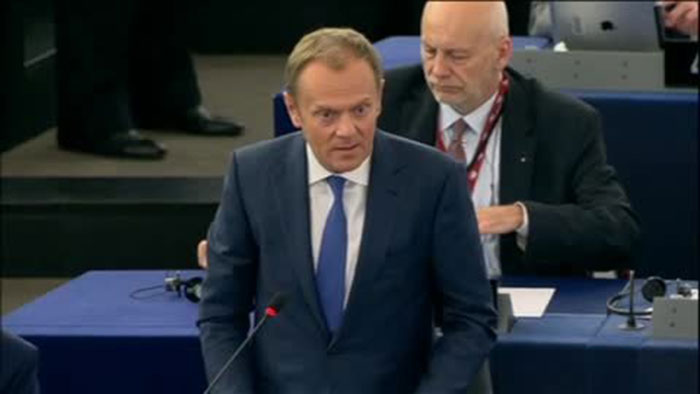President of European Council Donald Tusk will travel to Vienna, Ljubljana, Zagreb, Skopje and Athens from the 1st to the 3rd of March to continue building a European consensus on how to handle the migration crisis and to prepare for the summit with Turkey on 7 March and the European Council on 17-18 March.
President Tusk will also meet NATO Secretary-General and the Executive Director of Frontex in Brussels on Friday 4 March. As President Tusk said in the European Parliament on 24 February: “There is no doubt we need to restore Schengen. It will cost money, take time and require a huge political effort. There will be countries that may not be able to cope with this challenge. But Europe will be there to assist them. We need to invest in Schengen, not in its collapse. Its future will be one of the key issues to be discussed by the leaders on 7 March.” “We must avoid having a battle between plans A, B and C. It does not make any sense, as it only creates divisions within Europe without bringing us closer to a solution. Instead we must look for a synthesis of different approaches. There is no good alternative to a comprehensive European plan.”
President Tusk’s trip will focus on some of the main countries of the Western Balkans route as the February European Council decided to get back to a situation where all Members of the Schengen Area fully apply the Schengen Borders Code and refuse entry at external borders to third-country nationals, who do not satisfy the entry conditions or who have not made an asylum application despite having had the opportunity to do so. The restoration of the full functioning of the Schengen area will take time and must be accompanied by measures to address the humanitarian consequences for Member States affected as well as humanitarian assistance to Syrian refugees and countries neighbouring Syria.



